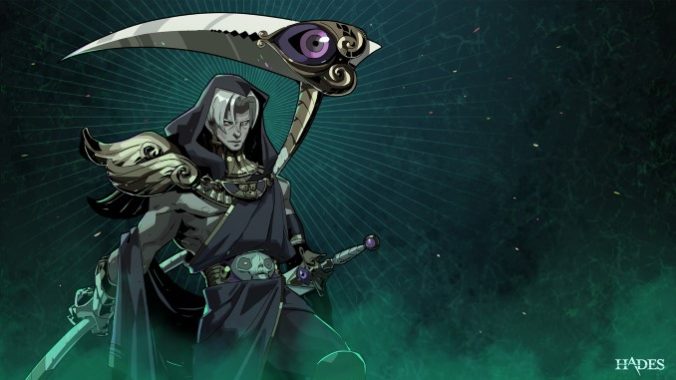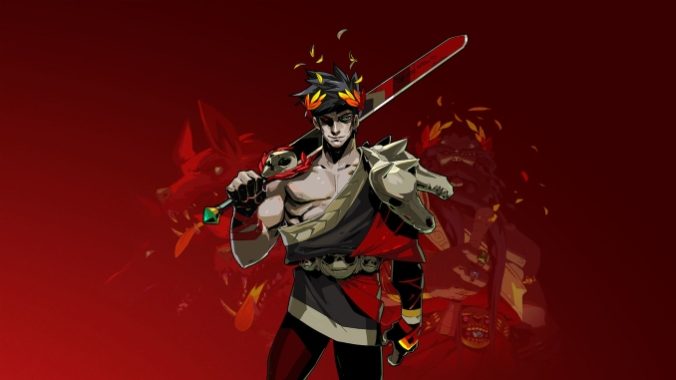When Hades came out of Early Access in 2020, it was met with lavish praise. Not only was it defined by graceful action and Supergiant Games’ knack for aesthetic craft, but it also managed to weave affecting bits of narrative into its procedurally generated trips through the underworld. While roguelikes had traditionally lived and died by the strengths of their core mechanics and gameplay loops, this one’s drip feed of storytelling added a different incentive to dive into another run, fleshing out its main character Zagreus and his motivations with each journey through the depths. The son of Hades and prince of the underworld, Zagreus attempts to flee his dreary subterranean home and reach his mother, Persephone, above ground. During his numerous failed escape attempts, we come to know the squabbling Chthonic and Olympian gods and the reasons for our heroes’ attempted ascent. It all makes for a lovingly crafted Greek myth fanfic that centers on Zag’s quest for belonging as he grapples with his tumultuous relationship with his family.
Among these many story threads, some of the most well-executed are between our protagonist and his potential romantic partners. In talks with Thanatos, the personification of death, and Megaera, one of the fury sisters, Zagreus comes to understand that while he doesn’t want to be confined to the underworld forever, there are still people precious to him there. We watch as these characters’ initial nonchalant posturing gives way to heartfelt conversations and messy confessions. Thanatos clearly has a crush on Zag from the start, so he takes the prince’s desire to leave personally, while our hero is also on shaky terms with Megaera after their past fling deteriorated. Whether you choose to enter one of these partnerships or both, pursuing them lets him patch up these misgivings and potentially move towards something more. The romance with Thanatos is particularly adorable as the two struggle to put their feelings into words, the performances selling their nerves.
Beyond these entanglements creating some tender moments, they also reveal that Zag is bisexual, making him one of the only bi male leads in a high-profile game. In a medium where the default for most works, and especially anything action-oriented, is a gruff straight dude with a buzzcut, it’s a breath of fresh air to have a lead who is queer and doesn’t fall backwards into a bundle of stereotypes. Zagreus is defined by many disparate elements, driven to break through anything in his way to reach the surface, but also takes a deep interest in helping the denizens of his old home, such as Achilles, Patroclus, Eurydice, Sisyphus, and more. He’s strong and competent but also wracked with a nagging sense of longing and feelings of abandonment, which drive him to track down his mom. He’s charismatic but not depicted as sex-crazed like so many bi characters tend to be portrayed. In short, he feels like a complete person who isn’t typecast by his sexuality into a certain role, one whose many nuances shine as he grows throughout the story.

And while unlike many who are bi, Zagreus’ sexuality is never questioned or condemned by those around him, his general arc parallels these frictions. Folks who are bi frequently find themselves stigmatized by both straight people and sometimes even by those in the queer community, their attraction to multiple genders viewed as a “temporary confusion” or as more likely to make them unfaithful. Many bisexuals are pushed to lie about their identity when trying to find a partner due to biphobia in both these circles. While Zag doesn’t experience these problems directly, as the historical Greek setting and his godhood distances him from contemporary realities, he also finds himself in an awkward place between two worlds.
He struggles to meet the expectations of both the Chthonic gods who raised him and his blood-relative Olympians, the tensions between these two groups setting up many of the narrative’s central conflicts. Those from the underworld use any means necessary to thwart his attempts to leave, while the Olympians’ favor frequently feels fickle or transactional. Even if the latter group is more accommodating, they both want our protagonist to abandon the other, anything else seen as treason. His father fits into the role of the cold patriarch of the Chthonic side, upholding the status quo as he restricts his son’s deviant actions.
As Zagreus throws himself at the countless hazards awaiting in Tartarus, Elysium, and the other realms of hell, he searches for a place where he feels he can be himself. He dies and is reborn again and again, slowly inching closer to his goal. This arduous process is backed by gameplay challenges that initially seem insurmountable, but eventually, a chance at reconciliation occurs. In the extended epilogue, our hero gets both groups to finally bury the hatchet and accept him on his own terms. He not only patches up his relationship with his dad and the rest of the underworld gods but creates harmony between his mother and her Olympian family. Zagreus’ sexuality may not be a major point of conflict throughout, but intentionally or not, his quest for acceptance from these conflicting groups has emotional parallels to what it can be like to struggle with your identity as someone who is bi.
Speaking personally, while I wouldn’t say that this game was the one bolt of lightning that made me accept that I’m bisexual, it undeniably helped me grapple with my feelings. Its combination of a respectfully portrayed bi lead and tale about resolving disparate identities hit home (and it also helped that just about every character is very hot!). Between Zagreus’ adorable interactions with his potential romantic interests and the trajectory of its greater conflicts, Hades presents an optimistic queer story about finding acceptance. While its responsive action and gratifying builds are mighty empowering, perhaps its greatest power fantasy is that it allows the player to find a place to belong.
Elijah Gonzalez is a former games intern for Paste Magazine. In addition to playing the latest indies and AAAs, he also loves film, anime, lit, and creating large lists of media he’ll probably never actually get to. You can follow him on Twitter @eli_gonzalez11.

